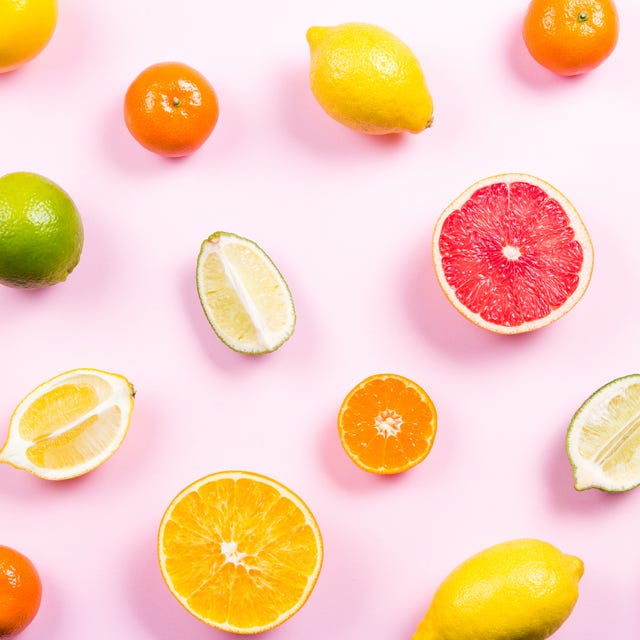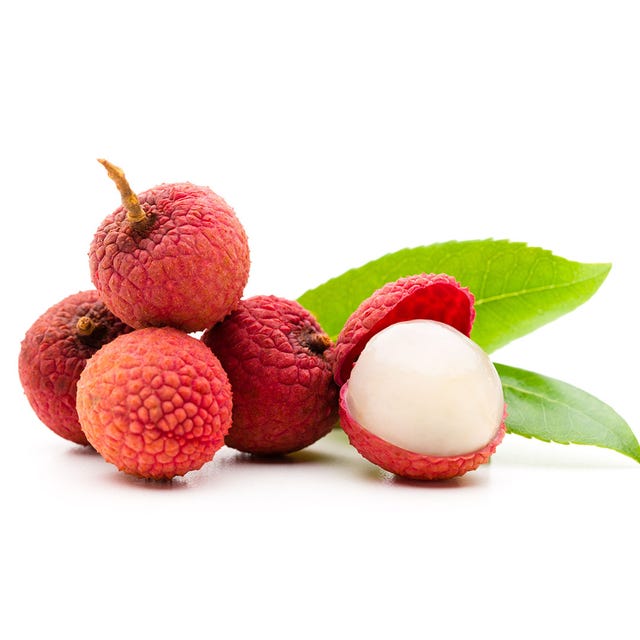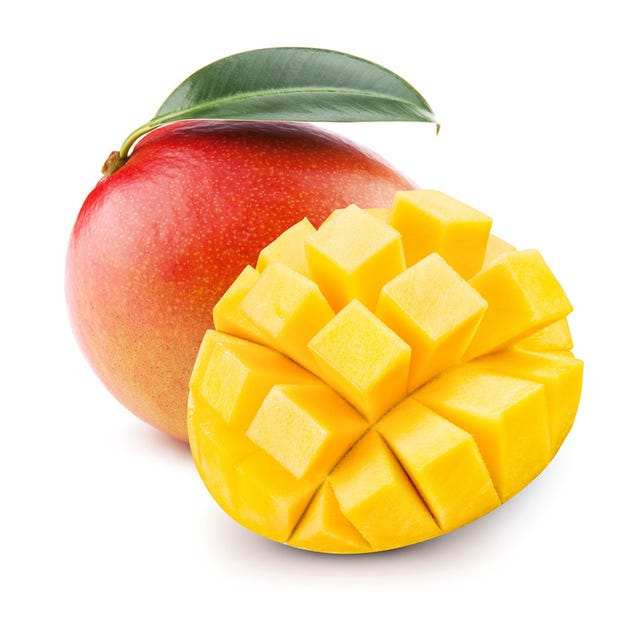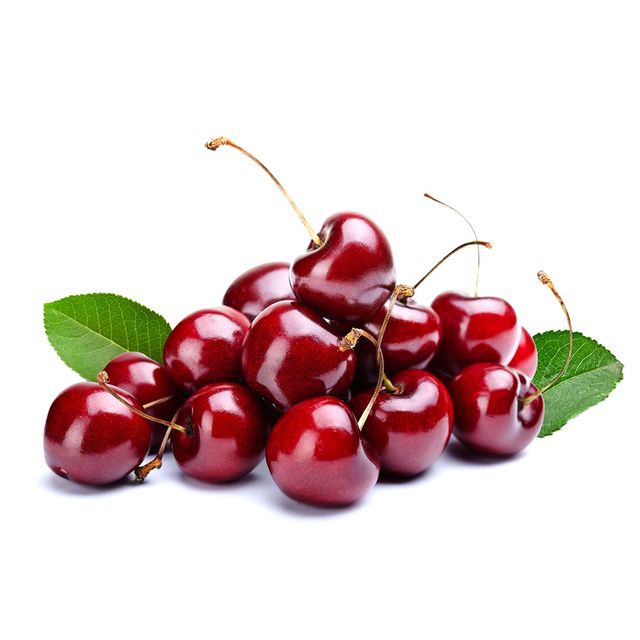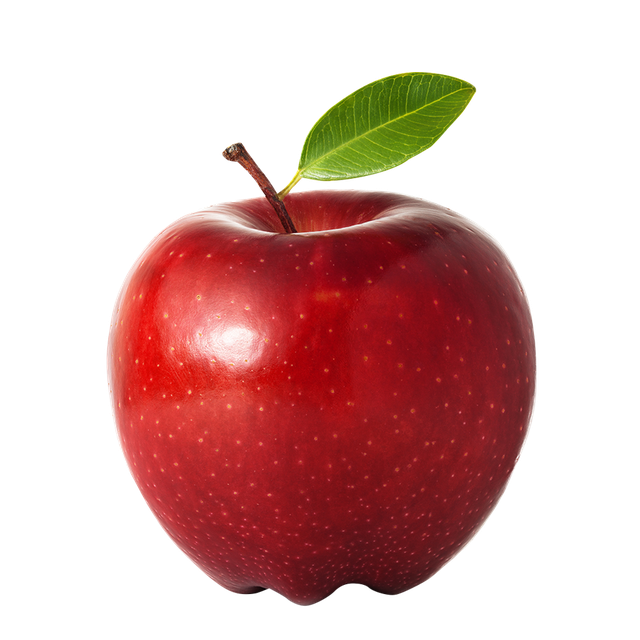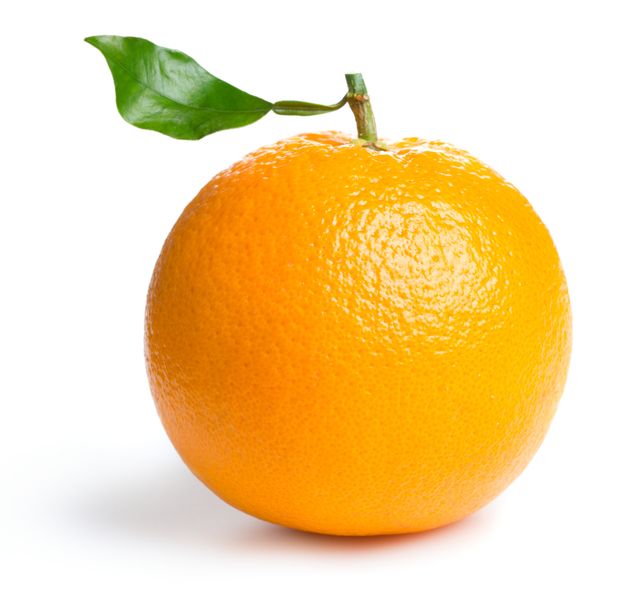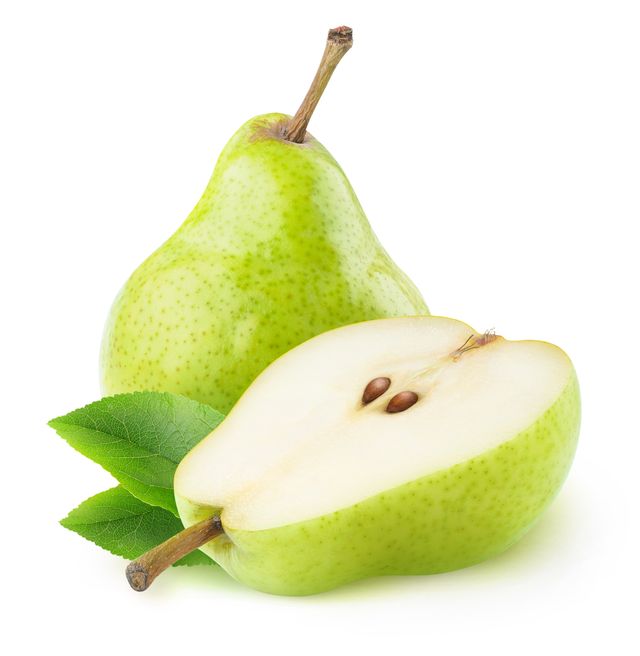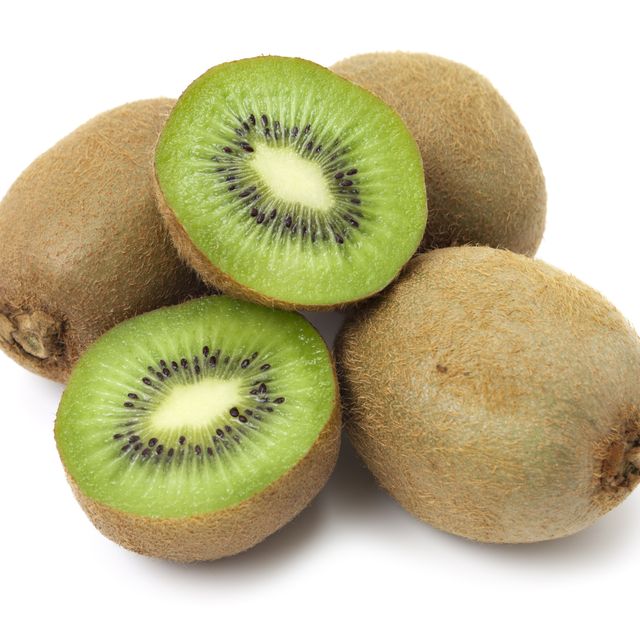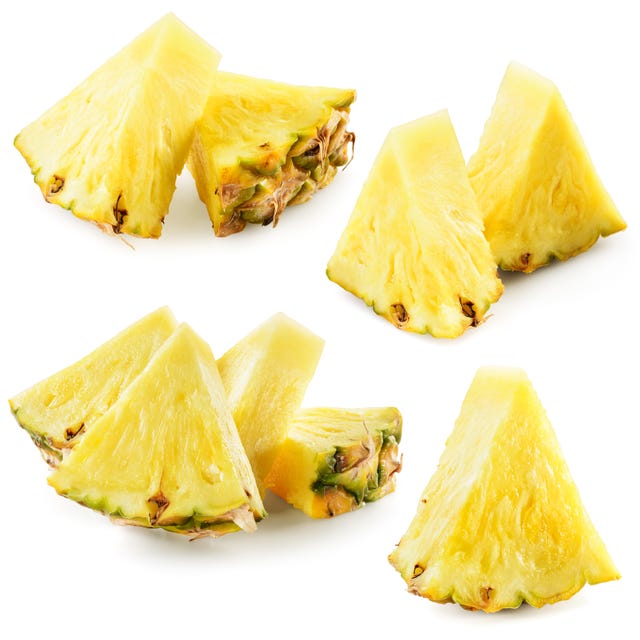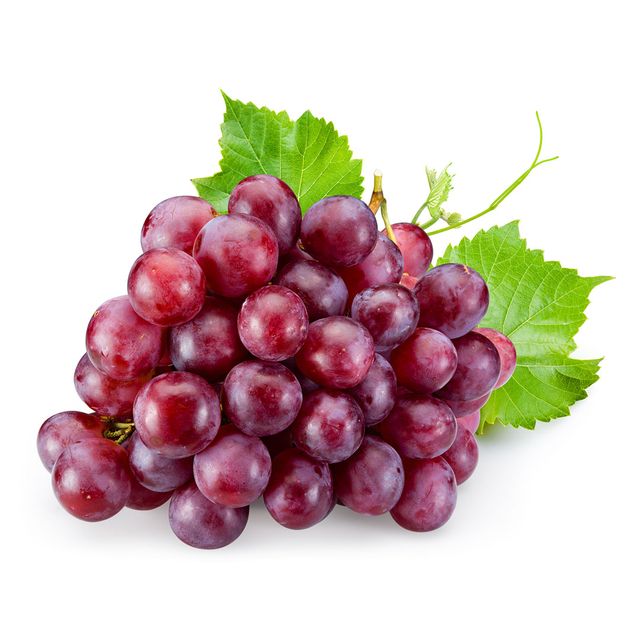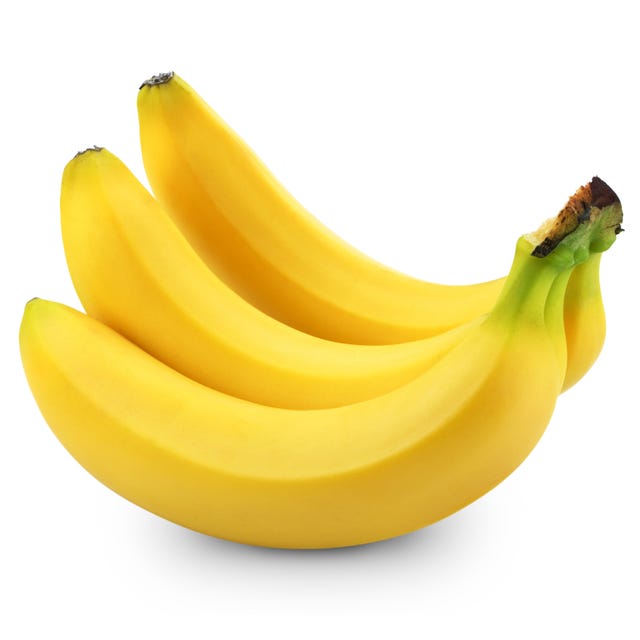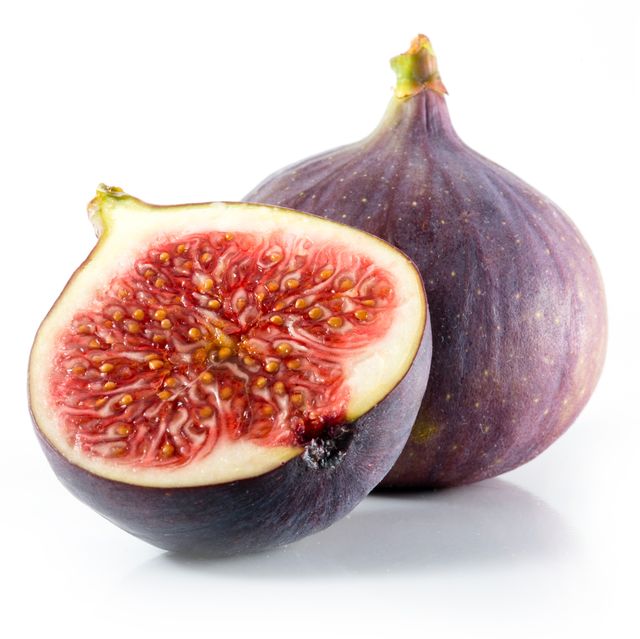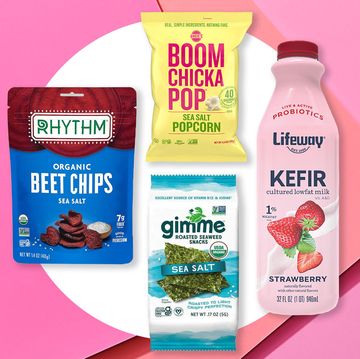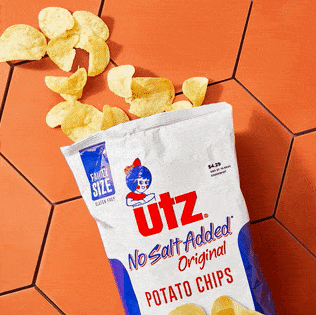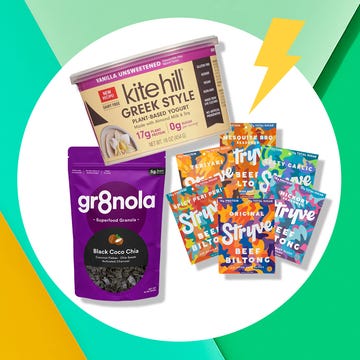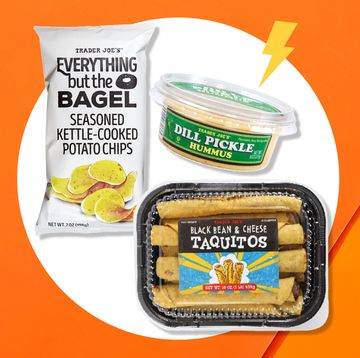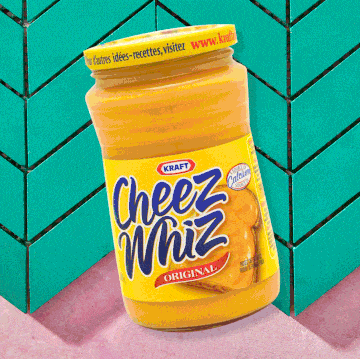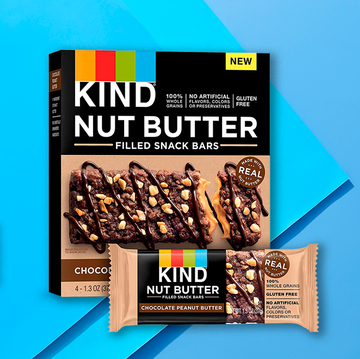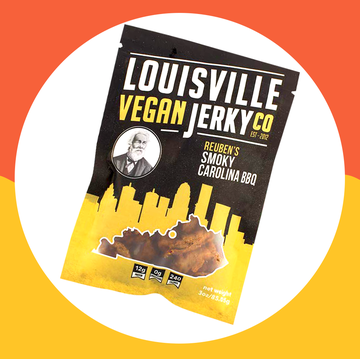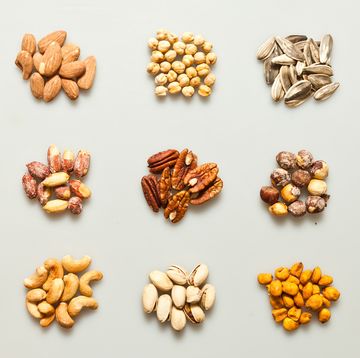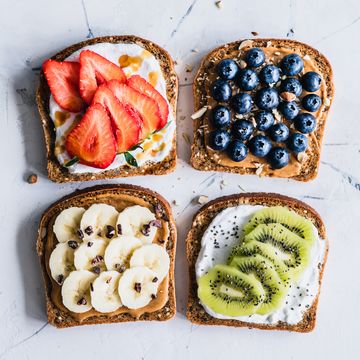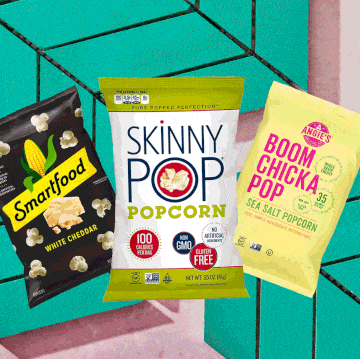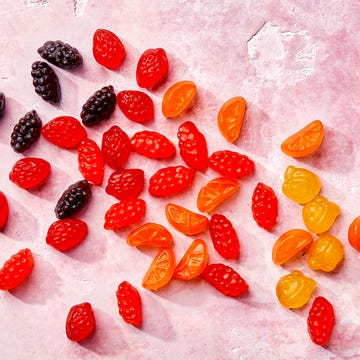Sugar is kind of like your fave reality TV show: You know you should consume it in moderation, it's just about everywhere, and you'll probably never quit it entirely. Okay, admittedly, sugar is a bit worse for your health—the sweet stuff has been linked to increasing rates of obesity, diabetes, and heart disease. But in the rush to avoid sugar (and carbs, too!), many people are shunning fruit. So...should you?
First things first—fruit is good for you. The fear of sugar and carbs has created massive confusion, says Lauren Harris-Pincus, RDN, founder of Nutrition Starring YOU and author of The Protein-Packed Breakfast Club. “Yes, [fruit] turns to sugar, but so does every other carb we eat at the end of the digestive process," she says. "It's a matter of what that food provides nutritionally, and fruit is very nutrient dense.”
Plus, the sugar found in fruit is different from your standard sweeteners like agave, honey, coconut sugar, maple syrup, or granulated sugar, according to Harris-Pincus. These sources of added sugar have a high glycemic index, meaning that they are digested and absorbed lightening fast by your body. Think: How quickly your blood sugar spikes when you nosh on candy.
Speaking of candy...watch Ariel Winter taste-test better-for-you candy options:
“When it comes to sugar in fruit, it's a bit different because of the fiber and other health benefits,” says Harris-Pincus. The fiber slows down the processing of sugar, and helps your body absorb it more gradually. (This means that fruit generally has a lower glycemic index.)
There are some cases when you do have to pay a little more attention to the type of fruit you eat. For example, if you are a person with diabetes, Harris-Pincus says you need to keep a tighter rein on your blood sugar levels. In that case, you need to be a little more picky, and choose nutrient-rich fruit with lower carbs and sugar. Same goes for anyone on a special diet, like keto.
Otherwise, don’t fear fruit. “Since all fruit contributes vitamins, minerals, phytochemicals, and antioxidants to our diets, we should consume them daily,” says Harris-Pincus. “Just monitor the portion sizes, and consume them with a source of protein and fat to temper the glycemic response—like the famous apple and peanut butter combo.”
Since there's no nutrition label on produce, check out this list of 13 high-sugar fruits, according to the USDA. (P.S. These fruits have crazy-low sugar counts.)
1. Lychees
Sugar: 29 grams per cup serving
This tropical fruit packs a serious sugar punch. Here's why it's okay to consume in moderation, though: It also gives you 136 milligrams of calcium, superseding your daily recommended intake of 75 milligrams.
Per 1 cup: 125 cal, >1 g fat (>1 g sat), 31 g carbs, 29 g sugar, 2 mg sodium, 2.5 g fiber, 1.6 g protein.
2. Mango
Sugar: 23 grams per cup
Mangoes are a quintessential summer fruit. They're also a very high-sugar fruit. By providing over a third of your daily vitamin A quota, though, that serving also helps to keep your eyes healthy.
Per cup: 99 cal, >1 g fat (>1 g sat), 25 g carbs, 23 g sugar, 2 mg sodium, 2.6 g fiber, 1.3 g protein.
3. Cherries
Sugar: 20 grams per cup of pitted cherries
With that much sugar per serving, no wonder it’s so easy to pop them like candy. Fortunately, they may also help you sleep better at night. Other benefits of cherries include cancer-fighting antioxidants and recovery-promoting potassium.
Per cup of pitted cherries: 97 cal, >1 g fat (>1 g sat), 25 g carbs, 20 g sugar, 0 mg sodium, 3.2 g fiber, 1.6 g protein.
4. Apple
Sugar: 19 grams per medium apple
It may surprise you that a medium apple (three inches in diameter) has 25 grams of carbs. That’s partly because it’s a high-fiber fruit. Apples are also rich in antioxidants like vitamin C, which help keep your immune system humming.
Per medium fruit: 95 cal, >1 g fat (>1 g sat), 25 g carbs, 19 g sugar, 2 mg sodium, 4 g fiber, >1 g protein.
5. Oranges
Sugar: 17 grams per one large orange
While there’s a good amount of sugar in one orange, it’s also dripping with antioxidants like vitamin C (more than your daily dose in just one fruit!) and minerals like selenium. P.S.: Opt for the whole fruit over juice. The fiber will help slow down the absorption of sugar.
Per one large fruit: 86 cal, >1 g fat (>1 g sat), 22 g carbs, 17 g sugar, 0 mg sodium, 4 g fiber, 2 g protein.
6. Pears
Sugar: 17 grams per one medium fruit
If you’re looking for a mid-day snack, nosh on a pear. Not only will the high-sugar fruit satisfy your sweet tooth, it will keep you full longer, thanks to the six grams of fiber per medium fruit. You’ll also get a healthy dose of vitamins and minerals.
Per one medium fruit: 101 cal, >1 g fat (>1 g sat), 27 g carbs, 17 g sugar, 2 mg sodium, 6 g fiber, >1 g protein.
7. Kiwi
Sugar: 16 grams per one cup of sliced kiwifruit
The little fuzzy green fruit looks so unassuming, but one cup of sliced kiwi contains 16 grams of sugar. That said, you’ll also get nearly three times your daily recommended dose of vitamin C and nearly a full dose of vitamin K.
Per one cup: 110 cal, >1 g fat (>1 g sat), 26 g carbs, 16 g sugar, 5 mg sodium, 5 g fiber, 2 g protein.
8. Pineapple
Sugar: 16 grams per cup of pineapple chunks
While tropical fruits like pineapple tend to be sticky sweet, one cup serves up 131 percent of your daily vitamin C needs, and 76 percent of your daily manganese needs. It’s also super-hydrating, making it perfect for warm weather months.
Per cup: 82 cal, >1 g fat (>1 g sat), 22 g carbs, 16 g sugar, 2 mg sodium, 2 g fiber, >1 g protein.
9. Grapes
Sugar: 15 grams per cup
Sorry to break it to you...but grapes def count as a high-sugar fruit (that's why they're so delicious). The red kind are also rich in antioxidants, though, and both red and green pack a fiber punch.
Note: In raisin form, the grapes' sugar is concentrated in a smaller package—just like with any dried fruit. “It's much easier to eat a larger portion, too. Think of 12 to 15 grapes versus 12 to 15 raisins. They both contain the same amount of sugar,” says Harris-Pincus. So, if you have a soft spot for dried fruit, use it as an accent for your salad or trail mix, not the main attraction.
Per cup: 97 cal, >1 g fat (>1 g sat), 25 g carbs, 20 g sugar, 0 mg sodium, 3.2 g fiber, 1.6 g protein.
10. Bananas
Sugar: 14 grams per medium fruit
Bananas get a bad rep as a sugar-laden, calorie-packed fruit. But they also have a good amount of fiber and a ton of potassium and magnesium, along with other inflammation-fighting antioxidants.
Per medium fruit: 105 cal, >1 g fat (>1 g sat), 27 g carbs, 14 g sugar, 1 mg sodium, 3.1 g fiber, 1.2 g protein.
11. Pomegranates
Sugar: 12 grams per 1/2 cup of pomegranate seeds
The tiny, jewel-like seeds from a pomegranate are delightfully sweet and tart. But that's not the reason pomegranate is considered a super fruit: It’s packed with antioxidants, which keep your immune system in check and inflammation at bay.
Per 1/2 cup: 72 cal, 1 g fat (>1 g sat), 16 g carbs, 12 g sugar, 2 mg sodium, 4 g fiber, 1 g protein.
12. Figs
Sugar: 10 grams per large whole fig
Figs seem luxurious for a reason: They're high in sugar and in calories per serving (kind of like candy). Unlike candy, though, figs come with hearty doses of fiber and potassium.
Per large whole fig: 47 cal, >1 g fat (>1 g sat), 13 g carbs, 10 g sugar, 1 mg sodium, 2 g fiber, >1 g protein.

Christine Yu is an award-winning journalist and author of the book Up to Speed: The Groundbreaking Science of Women Athletes. Her work focuses on the intersection of sports science and women athletes. She's a lifelong athlete who loves running, yoga, surfing, and skiing.
